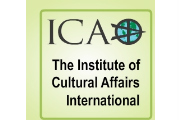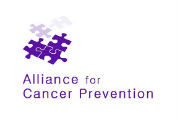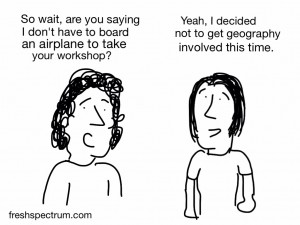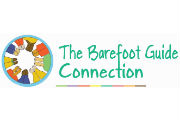Category Archives: Blog Post
Apr
Fight for Peace International
 In collaboration with my colleague Catherine Squire from Framework, I’ve been commissioned to deliver a Comic Relief funded evaluation of the Fight for Peace International Gap Alumni Programme (GAP) over the next 18 months.
In collaboration with my colleague Catherine Squire from Framework, I’ve been commissioned to deliver a Comic Relief funded evaluation of the Fight for Peace International Gap Alumni Programme (GAP) over the next 18 months.
Fight for Peace was founded in Brazil in 2000, using boxing, martial and personal development to encourage young people to move out of gangs and return to employment, education or training.
Fight for Peace International (FFPI) has created GAP to build the capacity and capability of community based organisations (CBOs) to deliver an adapted version of the FFP model. The programme was launched in 2011, and by 2015 FFP will have implemented its model with 130 CBOs. We will be evaluating the impact of FFPI’s support on organisations in Johannesburg, Nairobi, Jamaica and the UK, in collaboration with local evaluators.
Tagged | evaluation
Apr
Citations – sport for development
Yay! Always nice to be cited – it proves that someone out there is actually reading the material we diligently produce!
Spotted a couple of citations in a new publication: Schulenkorf, N. and Adair, D. (eds) (2014). Global Sport-for-Development: Critical Perspectives. London: Palgrave Macmillan. I haven’t managed to read it from cover to cover yet, but a preview can be seen here.
And in “Understanding the Horn of Africa: Adolescence in Kenya” (Martha Saavedra’s lesson plan on the daily lives of adolescent girls in Kenya.
….and in an interesting masters thesis on Sport and Community Development by Ekaterina Bang-Anderson here
….and in Cora Burnett’s 2012 presentation Sport-for-Development across strategic objectives
Goodness: must Google self more often (though in fact, I wasn’t *actually* googling myself when I stumbled across these!)
Mar
Citations – photography in research
And the half life of my doctoral work isn’t all that bad, either, even though the technology on which it was based (family photography in a pre-digital era) is now obsolete!
Recent glimpses include
Borkowska, Katarzyna (2013) The consumption of hegemonic masculinity: understanding gender patterns through computer-mediated communication. PhD thesis, University of Glasgow
Rose, G. (2012). Doing family photography: The domestic, the public and the politics of sentiment. Ashgate Publishing.
Vila, P. (2013). The Importance of Photo-interviewing as a Research Method in the Study of Identity Construction Processes: An Illustration from the U.S.–Mexico Border. Visual Anthropology, 26 (1),
Tinkler, P. (2013). Using photographs in social and historical research. Sage.
Verdina, Z. (2013) A picture is worth a thousand words: Storytelling with instagram. Masters thesis, University of Antwerp.
Mar
Streetfootballworld Theory of Change
Some glimpses of the process involved in facilitating streetfootballworld’s theory of change activity here, and an update on their progress here.
Some very nice feedback on the initial workshop was provided by Dr. Abhijeet Barse, a new member of the sfw network board:
“My note is about something all of us experience every single day of our lives. It is about something that terrifies most of us. And yet, it is quite simply inevitable. My note today is about change. The last time I was at streetfootballworld’s offices, I was there to attend and contribute to a workshop on the ‘Theory of Change’. We were given our briefings and plenty of material that gave us a glimpse into what the days ahead were going to be like. Despite this, I must confess I had my misgivings. My perception (and I am certain this is something I had in common with a number of other members) was that change cannot really be ‘theorised’. I felt that there are so many factors that influence change, and all one can do is gently nudge that change along trying to send it down the path we want to go down. Needless to say, I was completely off the mark.
What I saw and experienced in those two days was enough to not only change my mind, but also give me the confidence that this wonderful and dedicated team we’re all a part of is a forerunning change maker. I got a tiny glimpse into future plans and how things are going to change and I have never been this excited”.
Such open-hearted engagement is what makes the job worthwhile, Abhijeet: thanks!
Mar
Virtual facilitation testimonial
A heartwarming testimonial today via the Pelican Initiative: Platform for Evidence-based Learning & Communication for Social Change discussion group:
I would like to recommend Orla Cronin’s training for virtual meetings. We used her service for the online part of the Barefoot Guide 4 Writeshop in November last year and all were pleasantly surprised at how easy and useful it was, with group and plenary discussions and the ability to make things visible – and how good Orla was at facilitating.
Doug Reeler
Community Development Resource Association
Cape Town
021 4623902
www.cdra.org.za www.barefootguide.org
Mar
Training in online facilitation
- Learn to lead engaging online meetings that elicit innovative thinking and creative problem-solving.
- Develop competency in leading virtual meetings using Adobe Connect and ToP Focused Conversation.
- Build your confidence as a virtual facilitator.
- Learn tools and techniques for eliciting participation, virtual meeting design, and five best practices.
Weekly online interactive session of 1.5 hours, over 8 weeks from 4th April 2014
Further information available here: ToP Virtual Facilitation Brochure 2014 UK Cronin
Jan
Facilitation 2.0 and Virtual Workshops
Chris Lysy’s lovely cartoon used to encapsulate my excitement when I boarded yet another environmentally destructive flight in order to plan, learn, teach, facilitate and share ideas with like minded peers and clients all over the world. However, 2013 has been a wonderful year of desk based globe trotting. It’s been challenging, stimulating, educational, productive, and I also paid the bills and kept the wolf from the door. I managed to limit my work trips to just one intercontinental flight, and merely a couple of European flights – less than a 10th of my usual air miles and a record in almost 2 decades!
This is why:
Among the highlights of 2013 for OCR, virtual facilitation stands out as being particularly satisfying on a number of levels. Convening a group of participants who remain scattered across the globe for a workshop is beautifully carbon neutral, and it also permits deep participation of individuals who cannot/do not wish to travel, either because they have domestic commitments, too many other work priorities to warrant dedicating several days to an activity which might be important but which does not feel urgent, or ‘merely’ excruciatingly tight budgets. Virtual workshops create a quality of interaction which is sustainable between participants far beyond the workshop itself.
The Barefoot Guide Virtual Writeshop is described in a separate blog post. This involved eleven participants joining an online workshop, hosted via Adobe Connect, from locations as varied as Finland, South Africa, the UK, and the US. The group was convened and facilitated by Orla, and produced* by Martin Gilbraith. (See the very bottom of the post for more information on the ‘producer’s’ role. Martin, in the meantime, provides a very succinct description of what on earth a facilitator, virtual or otherwise, is actually for!)
The two other substantial events were the Institute of Cultural Affairs General Assembly, and the Alliance for Cancer Prevention workshop.
The ICAI General Assembly was held as a series of three virtual meetings, convening members of 19 of the affiliated national chapters of the Institute of Cultural Affairs. Participants reviewed and discussed national reports, voted on Board proposals, and deliberated on the ICAI strategy. Orla produced these meetings, which were convened and facilitated by Martin Gilbraith.
Alliance for Cancer Prevention workshop.
The Alliance for Cancer Prevention was similarly global, convening interested individuals from the US, Canada, Belgium and the UK to listen to and discuss the implications of a series of presentations from keynote speakers on environmental risks and hazards. The meeting was convened and facilitated by Helen Lynn and co-facilitated and produced by Orla.
Across these and other ‘virtual’ events, a huge variety of techniques were employed, including audio, video and PowerPoint/Pezi presentations, small breakout groups to brainstorm, polls to determine priorities for the discussion (or, indeed, for more formal reasons, such as voting on proposals from the board of ICAI), debriefing and responding to others’ feedback, documenting discussions, and planning next steps.
Feedback from participants in all of these events was extremely positive.
“It was a great meeting!!!!, Thanks for a very professional virtual facilitation job. Wow!!! It is incredible what technology is permitting in these days”
“Great meeting – unbelievably positive experience”, said a participant from the Ukraine (who had to keep herself ‘muted’ for some of the time due to the riots outside her window)
“Thank you very much for your superb job today. You did a wonderful job engaging members”
“Thanks to you all for a very satisfying learning and sharing process. Wow! These online meeting platforms really have great potential! I imagine a global community of practitioners linking like this each month – perhaps in the form of an action learning set…Or for like-minded individuals from diverse worlds (campaigners, government, activists, NGOs, community, CSR, donors, etc), reflecting on the real work, and building circles of support, and dreaming up brave social change initiatives!”
It was apparent that familiarity and practice with the software (Adobe Connect) enhanced participants’ experience. Being able to interact via text as well as audio both permits a fairer distribution of ‘airtime’ across individuals, but also permits ‘work-arounds’ for anyone who has technical challenges, such as malfunctioning headsets or poor bandwidth.
Other successful ‘virtual’ work in 2013 included completing, reviewing and validating a ‘theory of change’ for streetfootballworld (convened and facilitated by Orla, and produced by Esther Mae Cox). It also involved being member of the organising committee of the fast and furious Online Facilitation Unconference 2013, which was held in parallel with International Facilitation Week 2013, in which Orla hosted a workshop and participated in others, and also provided ongoing commentary via the OFU twitter feed.
To conclude this rather long summary, after the steep learning curve over the last couple of years learning how to ensure that the offer from virtual meetings and workshops at least equals and in some case surpasses ‘live’ events, we’re now really looking forward to further embedding this in the OCR offering in 2014. In addition to continuing facilitate and/or produce these events, we’ll also continue to offer training (Orla is an associate trainer on the 5Deep/ICAUSA “Technology of Participation Virtual Facilitation Online Training course”) and mentoring/supporting individuals and organisations who wish to become self sufficient in this area. We’re also these services in the form of production support to facilitators.
For a conversation about or demonstration of this approach, give me a call, and keep an eye out for demo videos which I will – eventually – upload!
In the meantime, here’s Chris Lysy again:
*For high profile, high ‘risk’ meetings (risk relating to the number of people attending, the vagaries of bandwidth, individual’s comfort with technology, and the complexity of the meetings themselves in terms of integrating audio, text and sometimes video, and managing and ‘floorwalking’ in breakout rooms, it is extremely important to have a dedicated facilitator and a dedicated producer. This liberates the facilitator and participants from having to interrupt the flow to address the ‘can you hear me’ issues, helps to address individual technical problems (e.g. ‘are you sure your headset isn’t muted’), helps to marshal people into breakout rooms (and retrieve them afterwards) and manage the documentation of the workshop so that the facilitator can focus on the dynamics of the group and the content being produced. The producer is also a fully trained virtual facilitator and is conversant with the detailed facilitation script for the workshop, so acts as an ‘insurance’ in case there are any technical problems at the facilitator’s end.
And a little light relief: here is the kind of virtual meeting we’re trying to avoid: a youtube video of one of the uncomfortable and frustrating kinds of meetings! http://tinyurl.com/l4fzbng
Tagged | conferences, training, virtual workshop; facilitation;, workshop
Dec
Training in online facilitation
- Learn to lead engaging online meetings that elicit innovative thinking and creative problem-solving.
- Develop competency in leading virtual meetings using Adobe Connect and ToP Focused Conversation.
- Build your confidence as a virtual facilitator.
- Learn tools and techniques for eliciting participation, virtual meeting design, and five best practices.
Nov
Barefoot Guide 4
The Barefoot Guide 4 writeshop, and accompanying virtual workshop, were hugely productive. The work is ongoing – follow the activities on the dedicated website here. The associated hackpad where you can contribute your ideas and follow the detail of the discussions is here.
Nov
Contribute to Barefoot Guide 4: Exploring the real world of social change
The Barefoot Guide Connection is a global and local community of social change leaders and practitioners, from many countries, sharing diverse practices to deepen and develop approaches and initiatives to contribute to a changing world.
The Barefoot Guide Connection has its foundations in the on-going writing and publication of Barefoot Guides which focus on a variety of social change practices. They have been translated into several languages, e.g. Swahili, Chinese, Bahasa, Spanish, French, Portuguese, Vietnamese and Arabic. The guides gather stories, analyses, approaches and resources for interesting practice from around the globe. Each Barefoot Guide is written by a collective of practitioner writers and published in an illustrated format that is simple and lively. A typical Barefoot Guide is a practical, do-it yourself book or guide. It has a supporting website, with resources, exercises, readings etc, including tried and tested concepts, approaches and activities.
Barefoot Guide 4 focuses on “Exploring the Real Work of Social Change”. This will present and illustrate examples of multi-actor social change in different contexts, exploring not just the stories and activities, but digging deeply to discover what the practice and real work are.
YOUR contribution is needed. If you can’t make the Writeshop from 18th-22nd November 2013 in Johannesburg, please consider attending the virtual meeting on 21st November, at 08:00 GMT until 09.30 GMT. All you’ll need is your energy, experience, an internet enabled computer and a headset. During this meeting, we’ll review progress at the Writeshop and generate additional contributions/stories on the theme of Social Change. Sign up here (free) to receive further information and login details.





